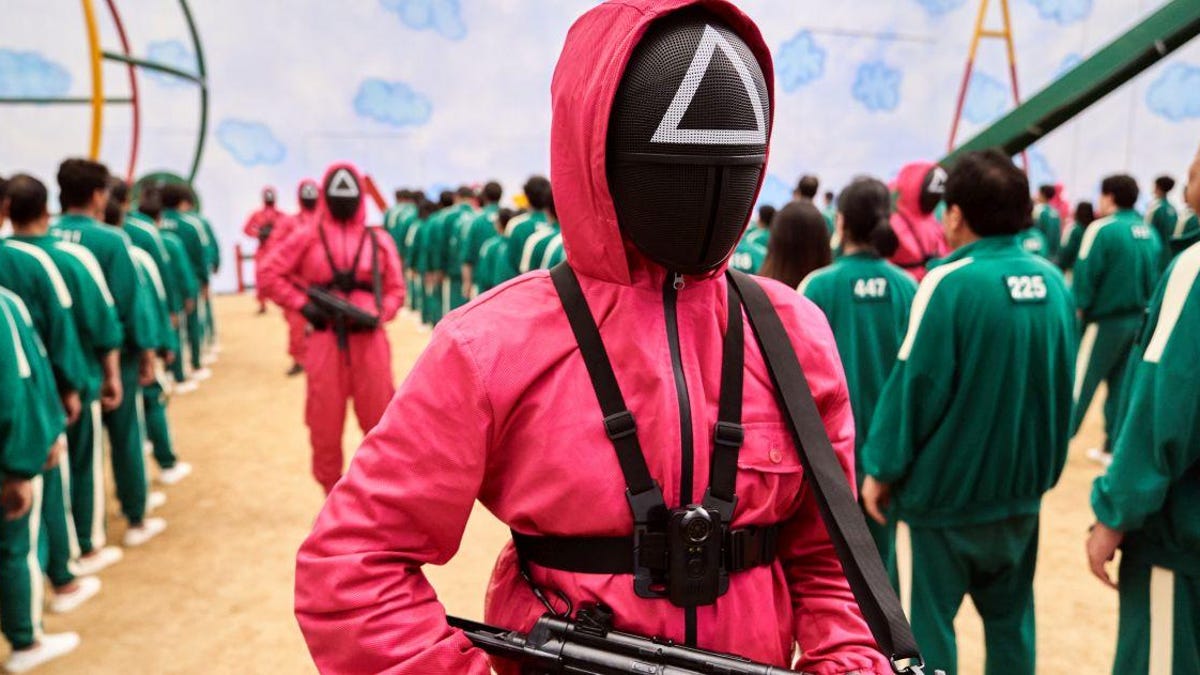Squid Game proves capitalism doesn't work, says North Korea
South Korean show Squid Game is a worldwide Netflix hit. North Korea is seizing on it for propaganda.

Squid Game is a lot of things. It's disturbing. It's apparently the most-viewed original series that Netflix has ever released. And, according to North Korea, it's also proof that capitalism doesn't work.
"It is said that [Squid Game] makes people realize the sad reality of the beastly South Korean society in which human beings are driven into extreme competition and their humanity is being wiped out," state-run media wrote on Tuesday. The show depicts "the process of hundreds of people who are forced to live a hellish life, struggling with unbearable debt, in a brutal game where they kill each other to claim the money prize that goes to just one winner."
Squid Game, which started streaming on Sept. 17, focuses on a desperately indebted group of people in South Korea. They're first tricked into a deadly tournament of children's games -- "Squid Game" is the name of a popular schoolyard game in South Korea -- but then many of them volunteer to come back, realizing the games may be their only chance to win the money they need to survive. The odds of survival aren't good -- think the Hunger Games, only featuring contests such as red light, green light and marbles.
Squid Game has become an unexpected hit around the world. It's been widely watched in China in spite of Netflix being banned in the country. In South Korea, Squid Game was responsible for so much online activity that a broadband provider sued Netflix for surging network costs. South Korean politicians have seized on its popularity, using the show to criticize opponents for corruption and ineptitude.
Evidently, the country's communist neighbor couldn't resist the same impulse.
"It is the current South Korean society where the number of losers in fierce competitions, such as employment, real estate and stocks, increases dramatically," the North Korean propaganda reads. It adds that Squid Game shows "the reality of living in a world where people are judged only by money."
North and South Korea have been engaged in a civil war since 1950, though overt military action between the two Koreas ceased in 1953. After 30 years of turmoil and military rule, South Korea became a democracy in 1986 and today has the world's 12th biggest economy. Meanwhile, North Korea has been ruled by three generations of the Kim family. Its GDP is estimated to be just over $27 billion, as compared with South Korea's $1.5 trillion.
"Under the rule of Kim Jong Un, the third leader of the nearly 75-year Kim dynasty, the totalitarian government deepened repression and maintained fearful obedience using threats of execution, imprisonment, enforced disappearance, and forced labor," Human Rights Watch wrote in a 2020 report.

